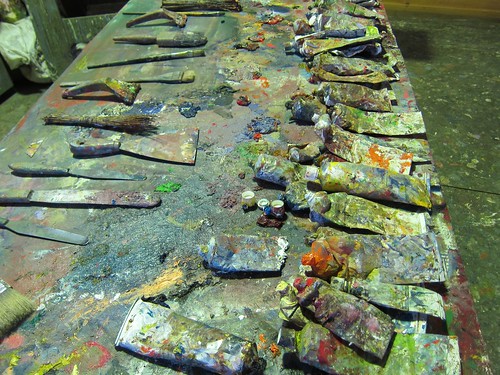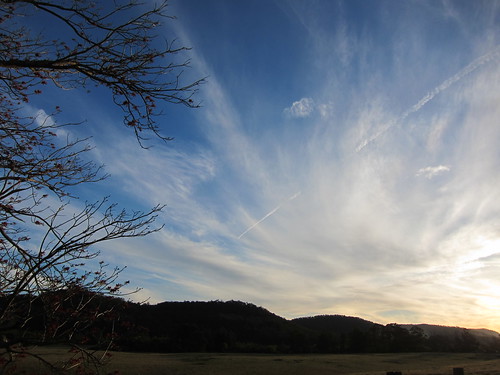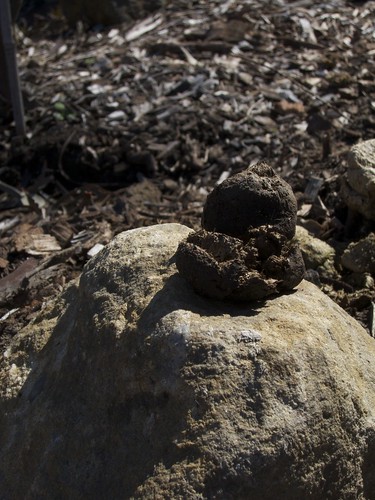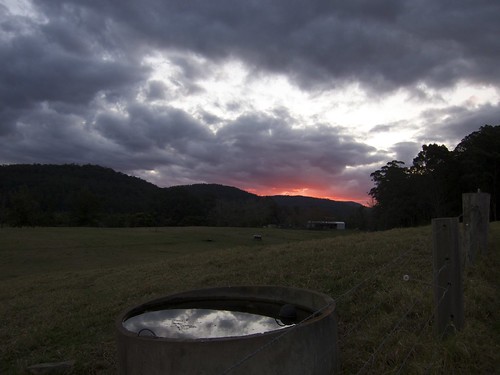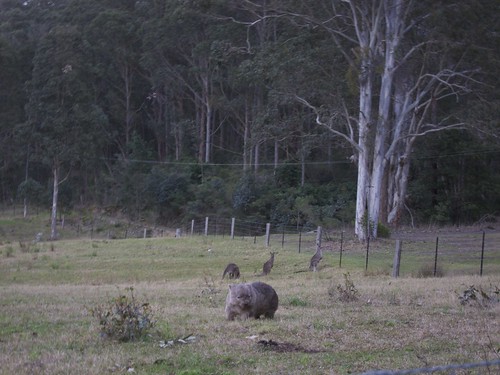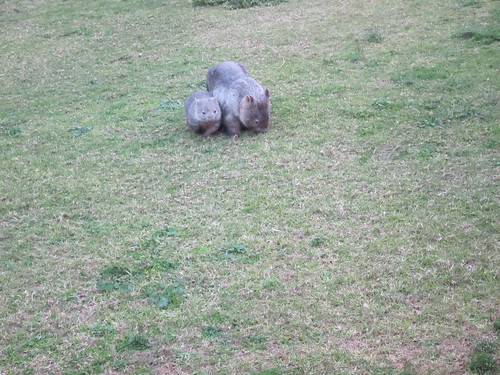Welcome back to the Standing There website, which has been up the back of the dance hall looking at its feet for too long while everybody else drinks punch and slides across the floor in their socks while singing the piano solo at the start of Old Time Rock n Roll.
Well. Enough of that.
Standing There Productions has been having some fun of our own in the past month.
For starters, we're artists in residence in one of the most beautiful and inspiring places in Australia at the moment. Once upon a time, Australian artists Arthur and Yvonne Boyd lived and worked on a farm on the Shoalhaven river in New South Wales. The property is called Bundanon, and they left it on trust with the Australian government so artists and members of the public could access the same space they found so inspiring. And it really is.
We've been getting a lot of work done here. Working together, too, with the time and space to think through every element of what we're planning but with the projects as our motivator rather than one of us having to be somewhere or all of us having to make a decision while doing twelve other things. We've been getting the giggles, disagreeing, floating stupid ideas, having them ridiculed and then riding that ridicule through to a healthy kernel of what might become an idea.
And then there's the other stuff.
It's funny what happens to you here. You start to see connections across networks of things that you wouldn't have noticed before. You notice that nature mimics itself. The river mimics the sky and the clouds mimic the tidal patterns of the water. The plants mimic the animals and the animals mimic each other. A wombat is a kind of sideways koala but its bent back elbows are like the strong, sequined arms of a fat blue tongue lizard in the sun. Wombats have an impressive family history, too, going back to prehistoric times and you can tell that, looking at them, and once again you feel like everything's part of everything else and looking a rock wallaby in the eye is as much a conversation as small talk in the post office.
You don't only see connections in nature though. You see connections in what you read and what you see and what you think. You read an article about evolution and an article about the internet and an article about, I don't know, how to cook a muffin and it's like cells pairing up and multiplying under a microscope - fragments from one idea float over towards another and then they slip as though by accident into each other and suddenly they're something new and tiny and if you give it time they might turn into something else.
Arthur Boyd did paintings of the rocks that surround us here, and the river, and the bush, and he felt that landscape was very important. His paintings weren't just about the bush and the river though. They were about religion and politics and power and fairness and barbarism. At the moment, in Australia, this is an interesting place to be, because the whole circle-of-life we-are-each-other business is a day-to-day reality, while our political lives are being shaped in an agonising tight-rope walk performed by people who - whatever else they might be - are treating our political system with the kind of respect that makes democracy, to paraphrase Winston Churchill, the worst system in the world except for all the others.
And so while the political machinations of the election seem, in many ways, a thousand miles from here (would a wombat have a preference for a particular system? Would a rock wallaby care what happened to the seat of Hasluck?)... it also feels like it really is the right place to consider the stimulating questions that are being raised by what's going on in Canberra.
Bundanon feels like a place where you can be wrong. You can have someone explain something and you can say "oh I get it, I was wrong" more easily than you can when you're in the city and you're half way through something and the phone rings and it's someone to tell you they think you're wrong.
I like challenging myself and being challenged here and it's interesting to see the same thing happen to the political status quo. I hope, in this ongoing political drama, that people can admit to doubt and ask the right questions and not hedge their answers and so far that's been enjoyable to watch.
Today, we went into a bookshop in a tiny town called Kangaroo Valley. The bookshelf was fantastic and was run by a man in a knitted jumper reading a book and holding a long piece of wood in his hand. The piece of wood was so that he could move a door stop back into place after someone came into the shop without having to get out of his chair. It was a dual-use stick, actually. It was also so he could change the dial on the music player without having to get up and do that either.
In the bookshop, there was a collection of old photographs. Not in a book. Just personal photographs someone had bought in an auction of a deceased estate. They were black and white. Loads of them. I found one - it was a photo of what looked like what used to be a town. Sparse, burnt trees and a flat landscape that went on forever, with melted-looking buildings and clusters of people wandering through it. Standing in the kangaroo valley bookshop full of hot coffee from the cafe down the road, I didn't know what it was. I turned it over. On the back, in pencil, someone had written "atom bomb". How this apparently original slightly-cracked photo of an utterly destroyed town (Nagasaki? Hiroshima?) ended up here, with those two horrific words on the back of it, I can't tell you.
I think what Bundanon is best at is perspective. When you have perspective, and peace and quiet and time and space, you can think constructively and imaginatively and you can stand in a bookshop with your hand over your mouth and have all afternoon to think about why.
